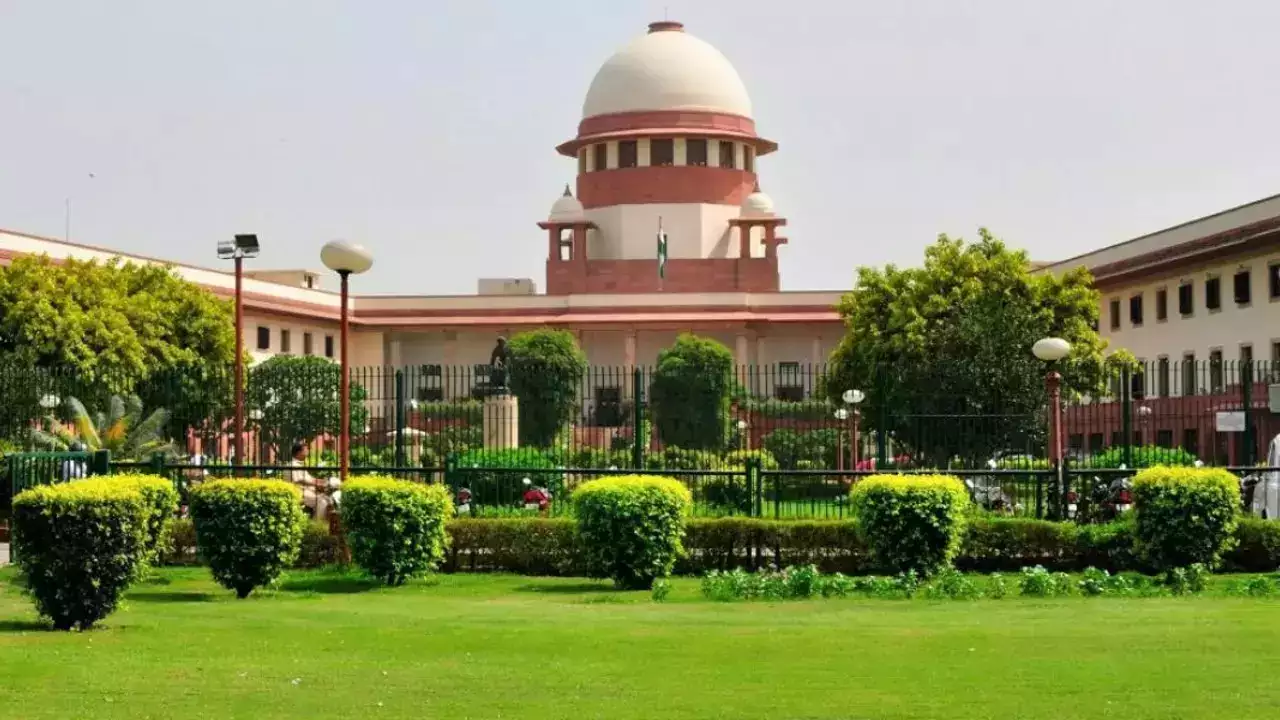India’s Got Latent: SC issues notice on YouTuber Ashish Chanchlani’s plea against FIRs
SC issues notice on YouTuber Ashish Chanchlani’s plea to quash or transfer FIR in India’s Got Latent case; tagged with Ranveer Allahabadia’s petition.
Kejriwal bail plea was stoutly opposed by the Directorate of Enforcement which urged the bench not to carve out any exception in the case of a “politician” as all are equal in the eyes of the law.

Supreme Court of India/ File Photo
The Supreme Court on Tuesday indicated that if Delhi Chief Minister Arvind Kejriwal is released on interim bail in view of the general election, he would not be performing official duties as discharging official work while on interim bail would have a cascading effect.
Advertisement
Advertisement
Hinting that it may consider granting interim bail to Kejriwal in view of the ongoing Lok Sabha elections, a bench of Justice Sanjiv Khanna and Justice Dipankar Datta said that if released on bail, Kejriwal would not be attending his office and performing his functions as Chief Minister.
The court said this while reminding senior advocate Abhishek Manu Singhvi appearing for Kejriwal that in the last hearing on May 3, 2024, the bench had asked whether he (Kejriwal) should be signing the files because of his present position.
As Singhvi said that it would create a piquant situation “of a government without Chief Minister and a Chief Minister without power.” Singhvi even offered that Kejriwal will not deal with any file relating to excise policy. The senior advocate said that now everything has been reversed on the excise policy.
However, the bench said that Kejriwal attending his office while being on interim bail will have a cascading effect. “It will have a cascading affect”, Justice Khanna told Singhvi.
Submitting to the suggestion from the bench, Singhvi said, “He will not sign any files, with a condition that Lt. Governor may not stop any work on the ground that I have not signed any file.”
However, the hints that the court may grant interim bail to Kejriwal in view of the ongoing general elections was stoutly opposed by the Directorate of Enforcement which urged the bench not to carve out any exception in the case of a “politician” as all are equal in the eyes of the law.
“Please don’t make an exception. It will send the wrong message. Demoralize the common man. The electioneering is a luxury”, Solicitor General Tushar Mehta appearing for the Directorate of Enforcement told the bench further stating “Please don’t earmark politicians as a separate category”, from barbers, mazdoor, farmers and businessman and corporate honchos.
Justice Khanna said, “We grant bail in exceptional cases. He is not a repeat offender” and “We cannot ignore this aspect (ongoing general elections)”.
Justice Datta said that we have considered this aspect keeping in view the “balance of convenience and equity”.
In the course of the earlier hearing today as Additional Solicitor General S.V. Raju took the court through the statement of different accused and one of them who has turned approver to present a case of Kejriwal’s involvement in the excise policy case, Justice Khanna repeatedly reminded him that the limited issue is Section 19 of the Prevention of Money Laundering Act 2002.
The Section 19 (1) of the Prevention of Money Laundering Act 2002, says that if an officer of Directorate of Enforcement “has on the basis of material in his possession, reason to believe (the reason for such belief to be recorded in writing) that any person has been guilty of an offence punishable under this Act, he may arrest such person and shall, as soon as may be, inform him of the grounds for such arrest.”
Telling ASG Raju that there has to be a balancing between the material that the ED is relying on for prosecuting an accused and that it is not relying on, the bench noted that it was almost two years since it was in possession of material that it has relied upon to arrest Kejriwal and it does not behove of an investigating agency to say that it was investigating the case.
The hearing will continue on Thursday or next week.
Kejriwal has approached the top court challenging the Delhi High Court’s April 9, 2024, order rejecting his plea against his arrest by the ED and the subsequent remand. The top court had asked the Enforcement Directorate to respond to Kejriwal’s plea.
Kejriwal in his plea against the High Court order has contended that his arrest after announcement of the General Elections is “motivated by extraneous considerations”. Describing his arrest as “motivated”, Kejriwal has contended that a sitting Chief Minister has been arrested in the middle of election cycle and especially after the announcement of the schedule of the 2024 Lok Sabha election.
The petition by Kejriwal against the High Court order says that the statements and material relied upon by the ED against him was in its possession for the last niner months but why it acted when general elections were on.
These statements relied upon as grounds of arrest were recorded by the ED from December 7, 2022, till July 27, 2023 and subsequently no further material has been collected against Kejriwal, states the petition.
“Moreover, such statements and material were in possession of the Enforcement Directorate for the last nine months and still the arrest has been made illegally in the middle of general election 2024”, says the petition by Kejriwal.
The petition says that Kejriwal’s arrest also constitutes an “unprecedented assault on the tenets of democracy” based on “free and fair elections” and “federalism”, both of which form significant constituents of the basic structure of the Constitution.
Advertisement